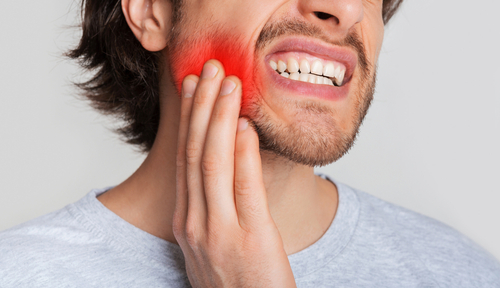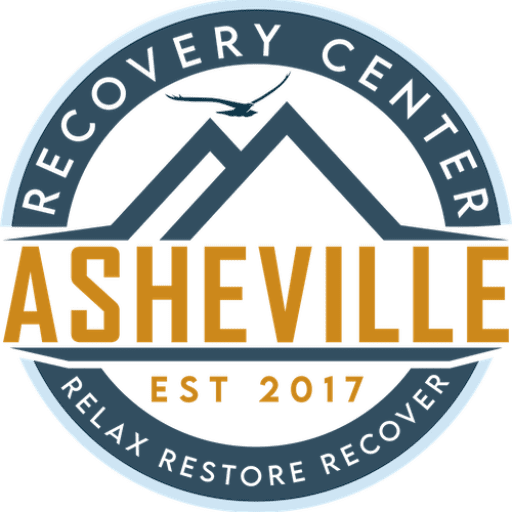Cocaine is the second most trafficked illegal substance worldwide. Because cocaine is highly addictive, it only takes one or a few uses to make a person dependent on the drug. Despite the initial allure of recreational fun, the devastating effects of cocaine on one’s life cannot be overlooked. Cocaine use may have significant risks to health and has damaging effects on oral health.
This article will cover the effects of cocaine addiction, the oral condition known as coke jaw, the correlation between oral cancer and cocaine use, treatment options, and more.

What is Cocaine Addiction?
Cocaine is an immensely addictive stimulant that comes in a white powder form and is typically snorted, smoked, or injected. Cocaine addiction, which is also known as cocaine use disorder, is a compulsive craving for cocaine, meaning the user cannot help but want it, due to its impact on dopamine in the brain.
Dopamine is a neurotransmitter that directly correlates to feelings of euphoria, movement, and processing rewards. When someone uses cocaine, they may experience these effects – the first time. As the drug wears off, they experience unpleasant reactions like anxiety, confusion, irritability, and/or agitation. These negative effects cause individuals to use cocaine more frequently to avoid the uncomfortable withdrawal symptoms.
Side Effects of Cocaine Addiction
On top of withdrawal symptoms, cocaine addiction presents a wide range of side effects that can affect an individual’s physical and mental health. Some common side effects of cocaine use include:
- Headaches
- Paranoia
- High blood pressure
- Decreased appetite
- Cardiovascular issues
- Seizures
- Loss of smell or nosebleeds
Read more about the lifelong effects of cocaine abuse here.
What is Coke Jaw?
Cocaine use not only poses significant effects on overall health but can also have detrimental effects on oral health. One specific oral health concern associated with cocaine abuse is the condition known as coke jaw, which refers to the damage and deterioration of the jawbone caused by prolonged cocaine abuse.
The consumption of cocaine may result in constricted blood vessels, reducing the flow of blood to the jaw. This decreased circulation can harm the jaw’s tissue and may eventually contribute to the deterioration or loss of jawbone.
Cocaine is used as a stimulant drug and it causes many of the body’s processes to speed up. This increase of activity in the central nervous system can result in varying side effects, with one being uncontrollable jaw movements. This movement is where the term ‘coke jaw’ comes from.

Side Effects of Coke Jaw
There are many side effects of coke jaw, many of which are long-term effects that impact everyday life. Some of the long-term effects may include:
- Bruxism: An involuntary habit of grinding one’s teeth and clenching the jaw. This can cause discomfort, headaches, and severe dental problems.
- Temporomandibular Disorders (TMD): A group of conditions impacting the joint and muscles responsible for jaw movement. Because this can impact jaw movement and affect how we speak, eat, and face movements, preventing these disorders will improve quality of life. Cocaine causes irritation or inflammation in this joint, resulting in difficulty eating, jaw pain, muscle stiffness, and locking of the jaw.
- Gum Disease: Periodontal disease, also known as gum disease, involves inflammation and damage to the tissues around the teeth. This condition can result in tooth decay and even tooth loss if not properly managed. The use of cocaine can exacerbate this condition, causing severe damage to the gums and increasing the risk of developing gum disease. These issues can develop as complications of the underlying gum disease, impacting oral health. It’s important to address gum disease promptly to prevent these associated conditions.
- Cavities: Cocaine consumption can markedly heighten the likelihood of developing dental cavities. Cocaine can contribute to the disintegration of dental plaque and the wearing away of tooth enamel.
Coke Jaw vs. Coke Mouth
When cocaine is used through methods like snorting, smoking, or rubbing on the mouth and gums, it can cause significant damage to oral tissues. While coke jaw has its own side effects, it is one symptom of a larger condition called coke mouth. Coke mouth is a term used to describe the overarching oral conditions that are associated with cocaine abuse. Although the results are often the same, coke mouth also presents with perforation of the oral palate.
Perforation of the Oral Palate
Perforation of the oral palate is a severe complication that can occur due to prolonged and excessive cocaine use. It refers to the formation of a hole or opening in the roof of the mouth, specifically the soft tissue known as the palate. Some symptoms of this perforation can include:
- Difficulties with eating or swallowing
- Nasal regurgitation, which is when fluid or food enters the nasal cavity
- Chronic nasal and sinus infections
Treatment for Coke Jaw

The treatment for coke jaw involves addressing both the underlying cocaine addiction and managing the specific complications related to jaw movement. The first step to recovery is treating the cocaine addiction. Some of the treatment options for cocaine addiction include:
- Medical Detox: Medical detox is commonly the first step in treating substance abuse. Under the supervision of a medical professional, individuals will be able to remove the toxins from their bodies in a safe and sterile environment. This can be done in a medical facility or at home.
- Behavioral Therapy: Therapy can help individuals identify the cause of their addiction. Behavioral therapy can help them develop coping skills, establish healthy habits, and provide guidance toward recovery. Many different forms of therapy are used in addiction treatment, with the most popular being cognitive-behavioral therapy.
Aftercare Services: Aftercare services are provided after an individual has completed an inpatient or outpatient treatment program. These services include prescribing medication, attending support groups, and continuing therapy sessions when needed.
Once the cocaine addiction has been addressed, you can begin treatment focused on managing the symptoms of coke jaw. Treatments may include:
- Pain Management: Managing pain is crucial when dealing with the significant discomfort caused by ‘coke jaw.’ To mitigate and lessen the pain and inflammation, healthcare providers may recommend certain medications tailored to the individual’s needs. This approach is aimed at providing relief and improving the patient’s quality of life.
- Dental Restoration: If tooth damage or decay has occurred due to coke jaw, dental restorations such as fillings, crowns, or root canal treatments may be necessary to restore teeth.
- Oral Appliances: These may be used to prevent jaw clenching and teeth grinding, because of how they stabilize the jaw. This helps to alleviate the stress on the temporomandibular joint.
Read more about the best treatment options for treating cocaine addiction here.

Cocaine Addiction Treatment at Asheville Recovery Center
Coke jaw results from prolonged and chronic cocaine use and can cause significant social and health problems throughout your life. Your health should be a top priority, and when you engage in drug use, you have an increased risk of many physical, mental, and emotional health problems. Cocaine addiction can take over your life, so it’s essential to get help before this happens.
At Asheville Recovery Center, we provide addiction treatment services to those suffering from substance use. Our center works to address every aspect of addiction and focuses on providing individualized treatment plans to our clients. This ensures every client receives the best care, resources, and support possible during their recovery journey.
Drug addiction is not an easy disorder to overcome on your own. If you or a loved one are struggling with drug abuse, contact us today to learn more about treatment programs.






